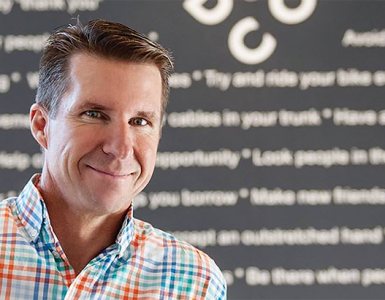VULNERABLE:Consumers and companies warned to exercise greater caution
By Thuli Zungu
No one is safe. Companies and consumers alike as cyber criminals are determined to disrupt operations or steal personal information for fraudulent purposes. In some instances, it took about three months for companies to detect the data breach as it happened with Experian credit bureau last year.
Manie van Schalkwyk, CEO of the Southern African Fraud Prevention Service (SAFPS) says cybercrime is a lot harder to stop and more importantly, prosecute.
“Today, cybercriminals may go after a large corporation to try and disrupt their services or steal money from them. Tomorrow, they may go after a bank or a financial services provider – like an insurer – to target personal information,” says Van Schalkwyk. The recent cyber-attack on Transnet is a serious data wakeup call and a reminder that, in the technology age, no company is safe from cyber criminals.
The question we need to ask is, are South African financial institutions prepared for a massive cyber-attack similar to that suffered by Transnet where the operations of the entire company were put on hold?” asks Van Schalkwyk. He says the world is no longer dealing with traditional white-collar and blue-collar crimes.
“We are dealing with cybercrime which is a lot harder to stop and more importantly, prosecute,” he says. “This is why early prevention, and necessary protection, is so important in the current environment. The SAFPS is a key role player in the industry and has an array of products which offers key protection,” says Van Schalkwyk adding that identity theft is a major concern in the current environment.
He said with the world spending most of 2020 in lockdown trying to deal with the impact of the Covid-19 Pandemic, there were very few opportunities for criminals and fraudsters to operate in the way that they used to.
“With consumerism moving online, so has the criminal enterprise, “says Van Schalkwyk. While Transnet was dealing with its cyber-attack at the end of July, Macsteel, a largest steel supplier, faced a similar cyberattack on its system.
“These coordinated attacks by cyber criminals are indicative of the environment that we live in at the moment,” says van Schalkwyk. He says these criminals are motivated, well-funded, and do not care who they go after. The cyber-attack on Transnet impacted the company so significantly that the company had to temporarily halt all operations at its ports in Durban, Ngqura, Gqeberha (Port Elizabeth) and Cape Town.
Macsteel reported soon after the attack that no personal information was stolen from the company and that its operations returned to normal soon after the attack. At the end of June, QSure, a big player in South Africa’s insurance industry, was hit by a data breach in which bank account numbers and other sensitive information were compromised by a third party.
The company would not confirm how many records were exposed through the breach. Sure is a registered financial services provider and one of the collection agencies that provides collection and premium handling services for the South Africa insurance industry. Its clients include big insurance companies and insurance brokers.
Following the data breach, consumers were warned to be cautious of phone calls, e-mails or SMS’ that ask for personal information and not to disclose their pins and passwords.
Last year Experian, said the personal information of as many as 24 million South Africans may have been put at risk after a fraudster accessed these details unlawfully.





























